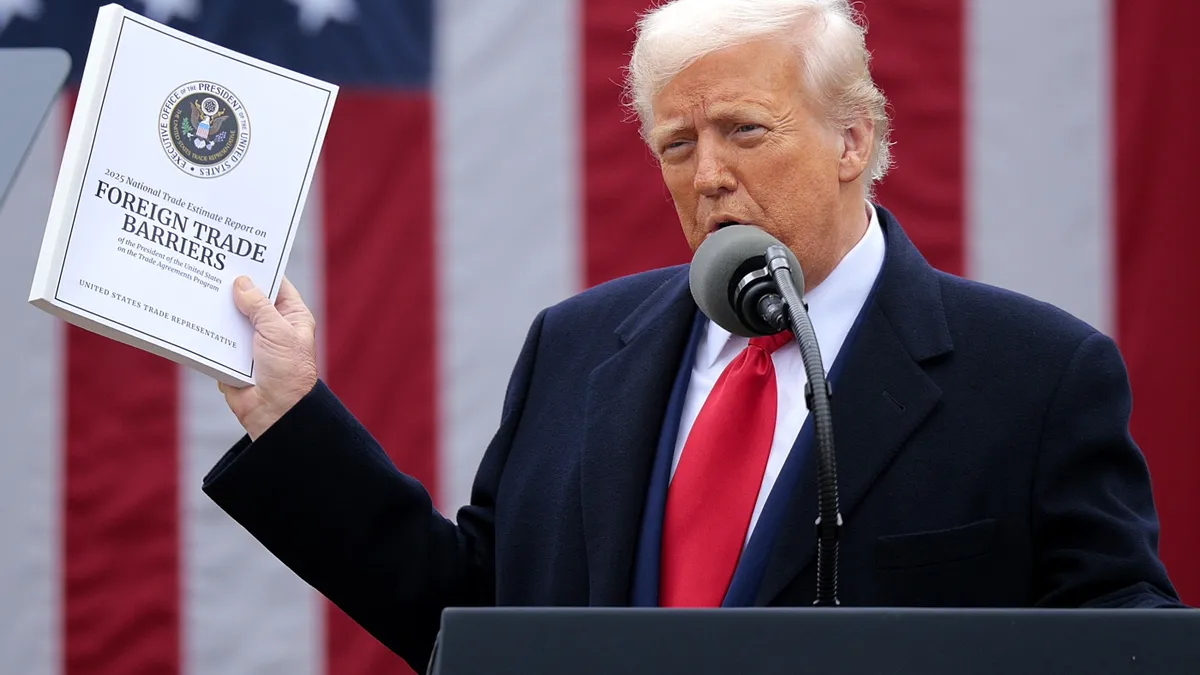
As businesses and individuals across the United States brace for potential economic fallout from the massive tariffs threatened by President Trump, effective August 1, a surprising trend has emerged: stock prices are soaring. Both the S&P 500, which includes the largest companies in the U.S., and the tech-heavy Nasdaq have recently reached record highs. This raises the question: what is driving this stock market surge amidst growing tariff concerns? Below, we explore four key factors that investors should consider, including the ongoing worries about a potential economic downturn.
The phrase "It's the economy, stupid," coined during Bill Clinton's 1992 presidential campaign, remains relevant today. Despite fears surrounding the impact of tariffs, the U.S. economy has shown unexpected resilience. The inflation rate rose to 2.7% in June compared to the previous year, yet the anticipated spike in consumer prices has not materialized. Additionally, the labor market continues to thrive, with employers hiring at robust rates and the unemployment rate remaining at a low 4.1%. Brad Peterson, a national portfolio adviser at Northern Trust, notes that the economy's ability to withstand tariff threats has surprised many investors. However, economists predict that the U.S. economy will likely grow at a slower pace in the latter half of the year, with a 33% chance of a recession looming within the next 12 months, according to a recent quarterly survey by The Wall Street Journal.
Another encouraging factor for investors is the strength of corporate earnings. Despite initial fears, companies are reporting solid profits. Major firms such as Alphabet (Google's parent company), Netflix, AT&T, and Hasbro have all exceeded Wall Street expectations, and many are expressing optimism about future performance. For instance, Delta Air Lines reported increased traveler confidence, which is particularly noteworthy given the surrounding uncertainties. Amanda Agati, chief investment officer for PNC Asset Management Group, points out that despite public concerns, consumer spending remains strong, contributing positively to corporate bottom lines. However, not all sectors are thriving; General Motors announced a $1.1 billion profit hit due to higher tariffs, although it remains profitable. Small businesses are expected to face greater challenges than larger corporations, as they lack the financial flexibility to manage the impacts of tariffs effectively, according to Kevin Gordon, a senior investment strategist at Schwab Center for Financial Research.
When President Trump first announced tariffs in April, the market reacted negatively, experiencing a significant downturn due to higher-than-expected import taxes. However, following a 90-day pause on new tariffs, which has since been extended, investors regained confidence. While a baseline 10% tariff is still in place, additional tariffs on specific items like steel and aluminum have been more moderate than initially proposed. This shift has led to a phenomenon known as the TACO trade, or "Trump Always Chickens Out," a term that reflects investor belief that Trump's actions may not be as severe as anticipated. For example, a recent trade agreement with Japan involved a 15% tariff on imports, which is considerably lower than the previously suggested 25%. This change has helped propel the S&P 500 to new highs, demonstrating how Trump's tariff announcements have recalibrated market expectations.
Despite the optimism surrounding record-high stocks, many experts caution that investors may be misjudging the tariff situation. Key trade agreements with major partners, including Mexico, Canada, China, and the European Union, remain unresolved. While current tariffs might not have had a pronounced impact yet, the average tariff rate is at its highest level since the 1930s, indicating potential future repercussions on import costs and consumer prices. Furthermore, ongoing uncertainties, such as Trump's criticisms of Federal Reserve Chair Jerome Powell, add to market volatility. Although Trump has refrained from firing Powell, his continued attacks could unsettle financial markets. Sandy Villere, a partner and portfolio manager at Villere & Co., warns that stocks may be overvalued, with potential declines of 10% to 12% possible in the latter half of the year. "Markets are priced for perfection," he cautions, suggesting that when expectations are too high, corrections often follow.
In conclusion, while the stock market is currently experiencing remarkable gains, the complex interplay of economic resilience, corporate earnings, tariff strategies, and lingering uncertainties creates a multifaceted landscape. Investors should remain vigilant and informed as they navigate these turbulent waters.